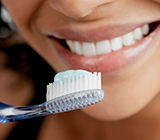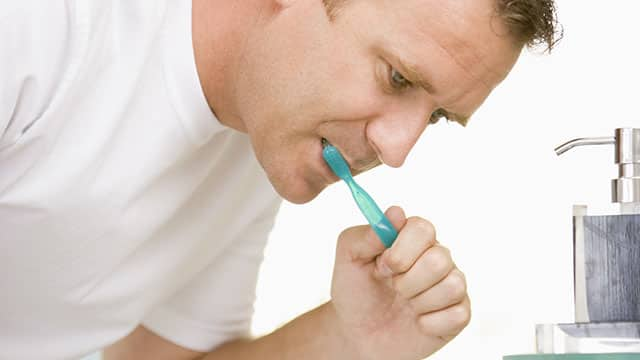Causes of Gum Recession
Gingival recession, or gum recession, is what happens when gum tissue is recessed and lowers its position on the tooth, exposing the roots of the teeth. This can be caused by any number of life habits, and your course of treatment is often dependent on the cause of the problem.
The following are some of the most common causes of gum recession:
- Overly aggressive brushing or flossing. It's great to be enthusiastic about oral care, but you should make sure that you're brushing, not scrubbing! Never use a toothbrush that isn't labelled "soft." Be gentle on your teeth and remember that taking care of them isn't supposed to hurt.
- Genetics. Your gums' characteristics are determined by your genetics, just as the rest of your body is. If one or both of your parents have gum recession, you're at a higher risk for receding gums.
- Abnormal tooth positioning. If your teeth are not in alignment to one another, gum recession can occur in this situation.
- Grinding your teeth, or bruxism. Do you often wake up with a headache? Does your spouse or partner complain that you grind your teeth? This habit can be the cause of many dental maladies, not just gum recession, so let your dentist know right away if you think you are grinding your teeth. Teeth grinding can be treated easily and painlessly with a mouth guard and several other options.
- Trauma to gum tissue. The gum tissue may recede when a traumatic injury has occurred on a tooth or teeth.
- Poor oral health. If your oral health habits are questionable, gum recession may be a result of periodontitis.
Don't worry. No matter what caused your gum recession, there is a treatment.
Receding Gums Treatment
If you are only mildly affected by receding gums, that's great! Catching it early means that you likely won't require professional treatment to fix it. Your dentist will help you identify the cause and will instruct you in how to address it. You may have to re-evaluate your flossing habits, get a mouth guard and buy a different toothbrush.
If you do need treatment, your dentist will work with a periodontist, a gum specialist, to decide on the best course of action. Along with helping you change the habits that caused the gum recession, your dentist will determine whether you would benefit from a special, deeper cleaning called a scaling and root planning. This is frequently the solution when your gum recession is caused by periodontitis. You'll also receive a new toothbrush and instructions in how best to care for your mouth to help it recover.
Depending on the cause of your gum recession, you may have to have surgical treatment. This procedure will be done by your periodontist and is called a gum graft. Your periodontist can tell you more about this procedure and what to expect.
Taking care of your oral health is very important. Your mouth is a great indicator of your general wellness, and an oral infection can affect your whole body. Be gentle with your teeth and go to the dentist if you have any persistent discomfort.
This article is intended to promote understanding of and knowledge about general oral health topics. It is not intended to be a substitute for professional advice, diagnosis or treatment. Always seek the advice of your dentist or other qualified healthcare provider with any questions you may have regarding a medical condition or treatment.
ORAL HEALTH QUIZ
What's behind your smile?
Take our Oral Health assessment to get the most from your oral care routine
ORAL HEALTH QUIZ
What's behind your smile?
Take our Oral Health assessment to get the most from your oral care routine











